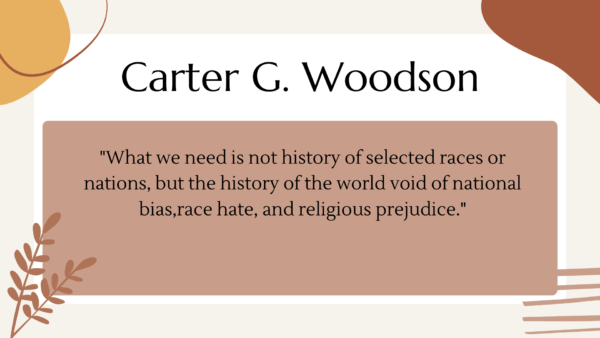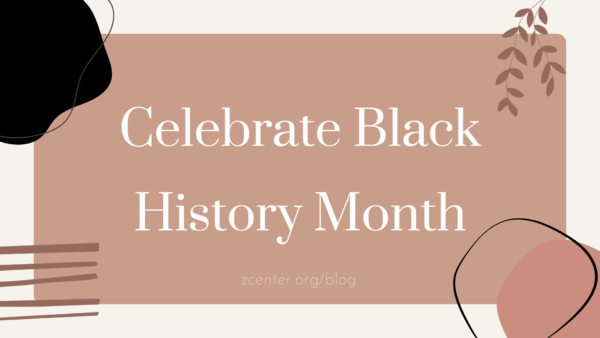We honor Black History Month with a look at how Black History Month started and some of the key figures who advanced racial justice from within the Black community.

Black history month began with Carter G. Woodson, known as the father of Black History. Woodson believed that Black people should be proud of their heritage. He also believed that Americans should understand the overlooked achievements of Black Americans. Woodson felt that Black history was often ignored and suppressed by authors of history books. He launched Negro History Week in the month of February to acknowledge Abraham Lincoln and Frederick Douglass. Carter G. Woodson published books on Black history including A Century of Negro Migration (1918), The Education of the Negro Prior to 1861 (1919), The History of the Negro Church (1921), and The Negro in Our History (1922).
W.E.B Du Bois was an African American writer, teacher, sociologist, and activist. He became a founding member of the NAACP. He was the first Black American to earn a PhD from Harvard University. His doctoral thesis focused on the suppression of the African Slave Trade to the United States of America. Du Bois focused on the great challenges of the Black community: poverty, crime, and lack of education. With the help of Du Bois the NAACP was known as the leading protest organization for Black Americans. One of W.E.B Du Bois’ writings included The Souls of Black Folk.
Thurgood Marshall was a civil rights leader, lawyer, and the first African American Supreme Court Justice. He fought against Jim Crow. He is best known for the Brown v. Board of Education case, which declared that “separate but equal” was unconstitutional in public schools. Another important case was Murray v. Pearson, where Marshall was able to sue the school for denying admission to Black applicants because of their race. Marshall fought for affirmative action and supported women’s right to choose an abortion.
To learn more about Black History Month and other important historical figures, please see these NAACP and PBS resources (please click on the hyperlinks). For further discussion on the role of Black Women in anti-oppression work, please see our previous posts:
- From Memphis to Combahee: The Rape Crisis Movement Owes Everything to Black Women
- Frances Thompson: Honoring Black Survivors Who Forged The Path Before Us
- Sojourner Truth: Activist and Orator
- Rosa Parks: Women’s Rights Activist
Below are a few ways to contribute to Black History month all year long.
- Support Black owned Business
- Learn about important Black figures and their contributions
- Purchase, read, and share books by black authors
Written by Denisse Ochoa, BA Sociology Candidate at University of Wisconsin-Parkside, ZCenter Outreach Intern
ZCenter aims to end sexual violence, mobilize and educate the public, and support survivors of sexual assault. Our blog addresses issues related to ending oppression and violence, since all oppression and violence are intersectional with sexual violence. All ZCenter blog posts are written by state certified staff, interns, and volunteers. For questions on authorship or content, please email info@zcenter.org.

